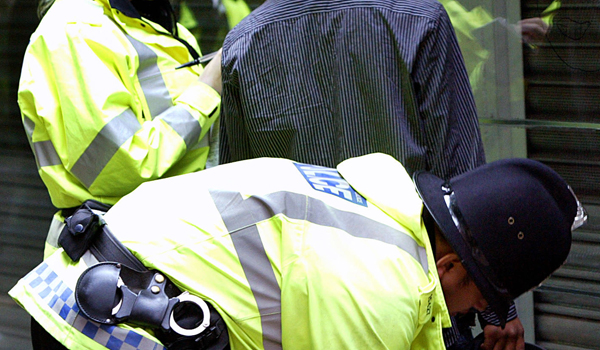Most teens support stop and search, but doubts remain about fairness, survey shows
A new survey shows that while most teenagers in England and Wales support police stop and search, many question whether it is used fairly.
While more than two-thirds agree the police should have stop and search powers, only a little over a half think officers use these fairly.
In addition, just over half of teenagers feel the police do a good job in their local area.
The survey by the Youth Endowment Fund (YEF) – a government-backed charity focused on preventing violence – questioned 10,000 children aged 13 to 17 about their views of the police.
The results show that 68 per cent believe the police should have stop and search powers (while 11 per cent disagree and 21 per cent are unsure). However, only 56 per cent think the police use these powers fairly (18 per cent think they do not and 24 per cent are unsure).
Differences in support and fairness
Support for stop and search and perceptions of fairness differ across ethnic groups. While 70 per cent of white children support its use, this drops to 63 per cent among Asian and mixed ethnicity children and 59 per cent for black children. Regarding fairness, just under half of black and mixed ethnicity teens (49 per cent) feel stop and search is applied fairly, compared with 54 per cent of Asian and 57 per cent of white teenage children.
Experiences of stop and search
Among the 11 per cent of teenage children surveyed who had been stopped and searched in the past year, 70 per cent said the police were polite and 66 per cent felt treated with respect.
However, children from Asian, black, mixed and other ethnic backgrounds are significantly less likely to feel they were treated respectfully by the police. While 74 per cent of white children found the police to be polite, only 59 per cent of minority ethnic children felt the same. Similarly, 70 per cent of white children felt respected by the police, compared with just 54 per cent of children from minority ethnic backgrounds.
Effectiveness of stop and search
The YEF’s review of stop and search, published earlier this year, suggests that increasing its use has limited impact on reducing violence, with two UK studies estimating a five per cent reduction in violent crime. In contrast, other policing strategies, such as hot spots policing, reduced violence by 14 per cent, and focused deterrence programmes cut crime, on average, by 33 per cent.
The review also raises concerns about potential negative effects on children and communities. Research indicates that those subjected to stop and search may face higher rates of mental and physical health issues and develop more negative attitudes toward the police, though it is unclear if these are directly caused by the stop and search experience.
Teens’ views on the police
Just over half (54 per cent) of teenagers believe the police do a good job in their local area, while 17 per cent disagree and 28 per cent remain unsure.
These perceptions vary significantly across ethnic groups. Sixty-three per cent of black teens think the police are doing a good job, compared with 54 per cent of white teens and 50 per cent of those from mixed ethnicity backgrounds. However, black and mixed ethnicity teens are more sceptical about fairness and the appropriate use of force. Only 36 per cent of mixed ethnicity teens and 39 per cent of black teens believe the police treat everyone fairly, compared with 47 per cent of white teens. Similarly, Asian (47 per cent), black (42 per cent), and mixed ethnicity (39 per cent) teens are less likely to agree that the police use force only when necessary, compared with 52 per cent of white teens.
The findings indicate that teenage children who have had direct contact with the police – whether through being stopped and searched, dealing with a school police officer or being arrested – tend to view the police more positively than those who have not. For instance, 59 per cent of teens with police contact believe they do a good job in their area, compared with 53 per cent with no contact.
Jon Yates, chief executive officer of the YEF, said: “Stop and search is a necessary police power and, as our findings show, most teenagers support its use.
“However, it must be applied fairly, or it risks further damaging the fragile trust that many young people, particularly those from minority backgrounds, already have in the police.”
The YEF’s annual Children, Violence and Vulnerability report offers the most comprehensive and up-to-date analysis of children’s experiences with violence in England and Wales. The findings in this release are from the fourth report in the series, What do children and young people think about the police? Previous reports in this year’s series include Who is affected by violence?, What role does social media play in violence affecting young people? and How do boys and girls experience violence?


